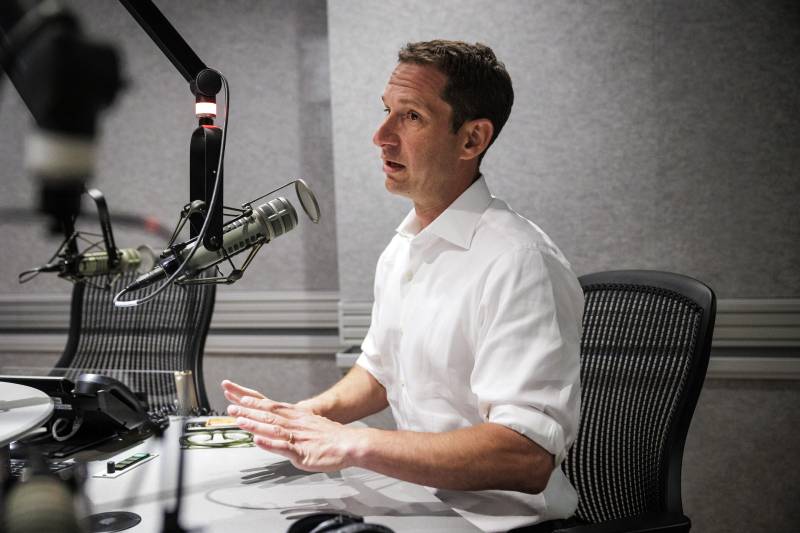San Francisco voters will choose their next mayor this November, and KQED’s Political Breakdown is bringing you interviews with all the top candidates.
Daniel Lurie, founder of the nonprofit Tipping Point Community, hopes to translate his background in philanthropy to reduce homelessness and tackle other government issues.
Here are five key takeaways from our interview.
He’s a City Hall outsider
Lurie is the only leading candidate in the race who hasn’t served on the Board of Supervisors. And he blames the people inside City Hall for the problems San Francisco is facing and supports reforms to the city’s convoluted commission system.
“I’m worried about the direction our city is heading in,” Lurie told KQED. “The City Hall insiders who got us into this mess, I don’t think, are equipped to get us out.”
Lurie believes his background in business and philanthropy has better positioned him to pull San Francisco out of a sluggish economic recovery following the pandemic.

